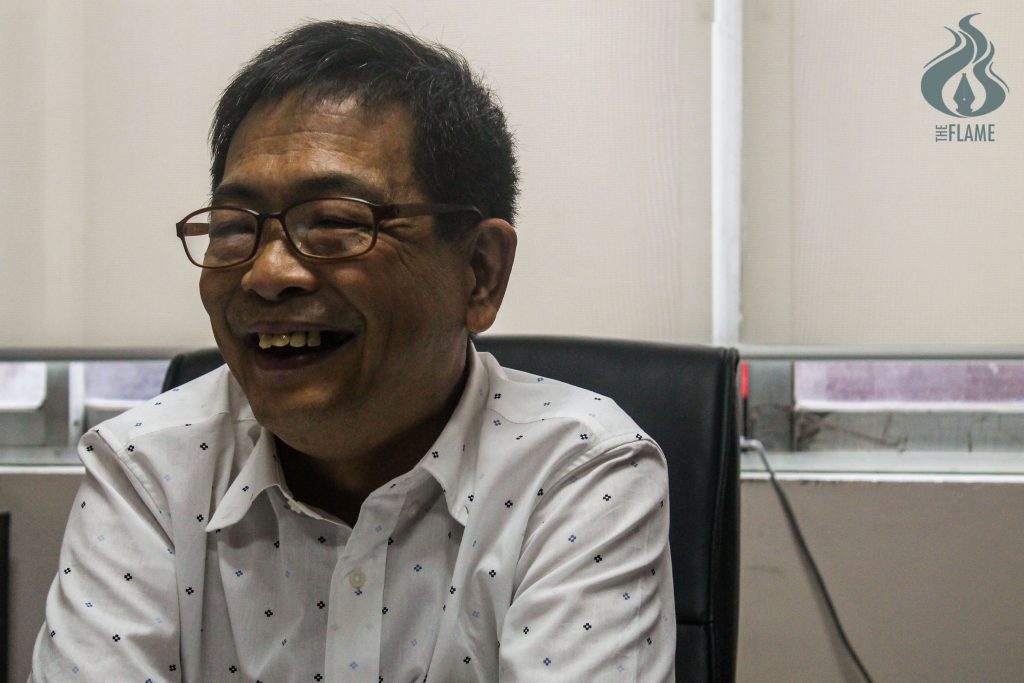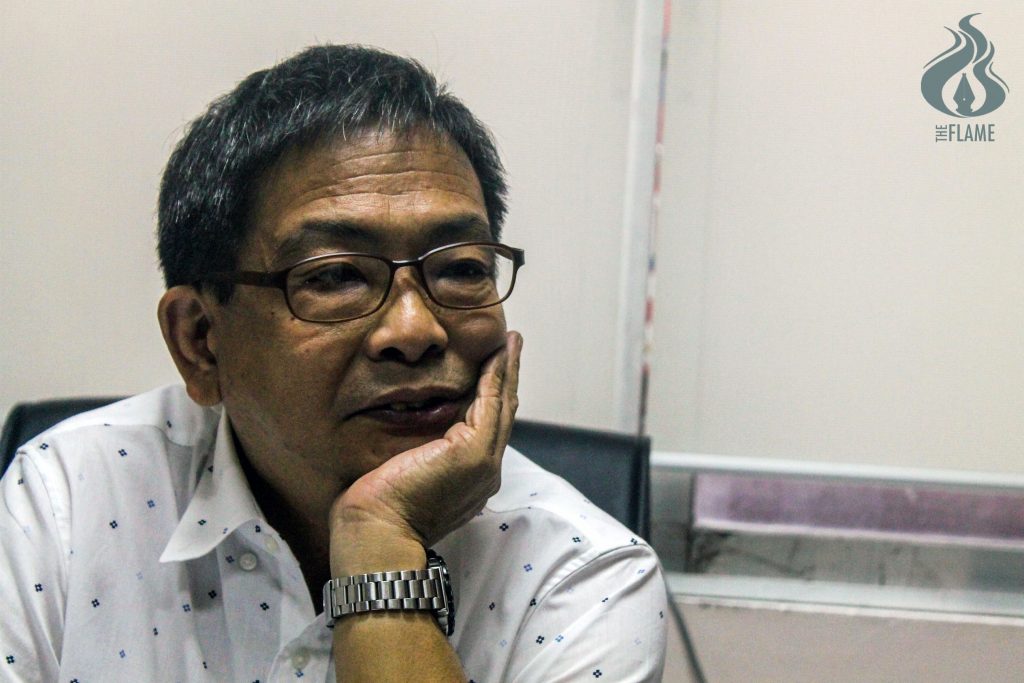
REBELLIOUS and a nonconformist in his college years, who would have thought that Elmer Timothy “Timmy” Ligon had a knack for serving people other than himself?
During his years in the Faculty of Arts and Letters, Timmy was not one to adhere to the confining rules of the University. However, he eventually realized the importance of these rules later in his life.
“Syempre nung una ‘di mo ma-a-appreciate ‘yung kung ano ‘yung binibigay sayo ng school. […] Very traditional ang UST […] and dapat mag-follow ka ng rules. […] Well, na-apply ko ‘yun nung nagtrabaho ako, ‘yung later part na lang actually. ‘Oo nga pala, tama pala,’ pero dati ‘di ko na-appreciate ‘yun,” he expresses.
Despite being a political science major, Timmy never really expected to end up in the realm of public service, albeit appearing inherently friendly and a good leader.
Now a refined man of ideals and wisdom way beyond his years, Timmy commands respect through the way he talks and carries himself, leaving a mark of reputable demeanor that inspires his people.
The barangay captain of West Triangle, Quezon City shares that his secret lies in being a good listener; when there is a problem, he lets people air out their feelings and tries to propose a solution beneficial to everyone— a trait essential for a true leader.
Breaking the stereotype
Nowadays, public servants easily succumb to the pressures and criticisms of society and fall into the traps of scrutiny. However, one look at Timmy sitting in his office chair with a timid smile and cautious eyes gives hope that the battle for just public service is far from over.

“Dapat strong ka talaga eh. Dapat malapit ka sa Diyos. Always be prayerful kasi may temptation eh,” he explains. “[You must be] transparent, kasi para sa’kin [by] being transparent, you solve corruption. ‘Yun lang. Achievement ko ‘yan. Saka ‘yun ‘yung battle cry ko eh, transparency.”
Timmy shares that his decision to become a public servant was influenced by the good leadership that his father and grandfather offered the people. He was also slowly groomed for a job in public service by his experiences in the committee on sports, anti-drugs, and in sales.
Battling critics
As barangay captain, Timmy’s actions and decisions affect more than just himself. He always keeps in mind his fight against corruption.
“[A]ng view ng tao sa politician, o public servant [ay] corrupt. Whether matino ka o hindi, ang view nila corrupt ka. Kaya nga lead by example, just live simple,” he advises. “Kahit gumawa ka ng mabuti all throughout, then you commit one mistake, ‘yun ang tatandaan nila. Tatandaan nila ‘yun, and that’s the sad part of it. Tatanggapin mo na ‘yun. [O]kay lang ‘yun, basta what’s important is I did my best.”
What matters to Timmy more than the criticisms is the feeling of accomplishment and fulfillment that he gets from inspiring others with the work he does, which is providing care for his people and doing tasks himself rather than asking others to do so.
Leaving an indelible mark
Public service may require a lot of time and effort from those in office, but despite his hectic schedule, Timmy always makes sure that he still has enough time for his family.
“Being a barangay chairman, […] kami ‘yung laging nasa frontline. Kapag may problema, tatawagan ka, dapat nandun ka,” he says. “Basta 5 p.m., uuwi na ‘ko. I see to it na I go out here by 5. Wala na ‘ko dito to spend time with my family, [and] weekends also […] Basta time management lang.”
For Timmy, all the hardships he faces as a father goes hand-in-hand with his job, because he does not only serve as the father of his family, but also of his community.
“I always lead by example, kaya sila naman, medyo na–i-inspire daw sila. ‘Di ko nga alam kung [bakit], basta natural lang, saka gusto ko kasi ‘yung ginagawa ko, […] I love what I’m doing right now,” he shares.
Timmy says he wants to leave a legacy of honest and committed public service.
“Mabait lang [ako] na hindi ako nagnakaw, hindi ako naging corrupt. Kasi ang ipamamana ko na lang sa mga anak ko is my good name. Wala nang iba,” he says. F LORRAINE B. LAZARO and MARY NICOLE P. MIRANDA



